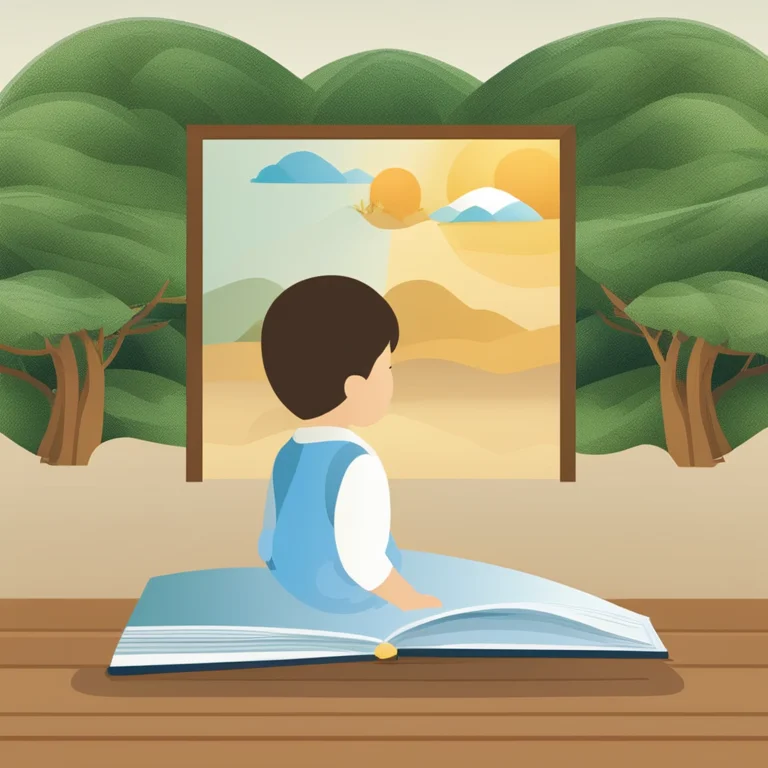
Mindful Calm for Teen Learners
Discover how mindfulness meditation offers high school students a gateway to enhanced focus, reduced stress, and emotional balance.
article by Hina Kurosawa
The Teenage Mind and Mindfulness
Mindfulness meditation has become a beacon of calm in the turbulent seas of adolescence. High school students face an array of stressors ranging from academic pressures to social dynamics. Introducing them to mindfulness equips them with a potent tool for managing their mental landscape. Studies have shown that integrating mindfulness practices in educational settings significantly contributes to improved concentration, lower stress levels, and a greater sense of well-being among teenagers. In a world that's ever more connected yet disjointed, mindfulness provides a moment of intentional solitude and reflection that is both necessary and nurturing.

Bridging Mindfulness and Learning
Gone are the times when academics were viewed in isolation from emotional and psychological well-being. Innovative curriculums are now acknowledging the importance of mindfulness as a foundational skill. Mindfulness meditation in high school settings doesn't just reduce anxiety; it has been associated with better performance on tasks requiring focus and executive functions. By starting or ending the day with a mindfulness session, schools report a noticeable difference in how students engage with their lessons and manage their school life.

Practical Mindfulness Exercises
While the concept can seem ephemeral, mindfulness practice is grounded in tangible techniques. Guided meditation, breathing exercises, and body scans are practical tools students can use. A simple exercise involves focusing on the breath—observing it as it enters and leaves the body— which can serve as an anchor during stressful moments. Another technique is 'mindful listening' to sharpen focus and presence during classroom discussions, promoting a more engaged and cooperative learning environment.

Overcoming Preconceptions and Challenges
There may be initial resistance to such practices, with claims of it being too esoteric or time-consuming. However, high schools are finding creative ways to incorporate mindfulness into the school day without eating into precious instructional time. Short sessions at the beginning or end of a class can yield substantial benefits. Moreover, with digital advancements, there are now apps and online platforms designed to guide students through quick and effective mindfulness exercises tailored to their busy schedules.

Long-Term Benefits for Future Generations
Mindfulness is not just a quick fix for student stress; it's an investment in the future. The mental resilience and emotional intelligence skills that are nurtured through regular mindfulness practice can serve students well into adulthood. Mindfulness lays the groundwork for a balanced approach to personal and professional challenges, fostering individuals who can contribute to society with clarity and compassion.
Mindfulness as a Community Practice
Mindfulness also has the potential to transform school environments when embraced as a collective practice. By encouraging groups of students to engage in mindfulness together, the sense of community and shared experience can further reinforce its benefits and promote a culture of empathy and respect. Schools that introduce such programs often record a decrease in bullying and an increase in student-led initiatives for mental health awareness.
Published: 1/9/2024
Modified: 1/9/2024
More predictions
Come back here soon to learn more about yourself and your future


The Brain's Transformation Through Meditation
Delve into the profound effects of meditation on brain structure and function, and how it influences cognitive abilities and emotional well-being.


Delving Into Meditation Queries for Spiritual Guidance
Discover insightful meditation questions that guide your spiritual journey, foster inner clarity, and enhance your metaphysical practices.


Mindfulness Meditation for Young Students
Mindfulness meditation practices tailored for first graders to foster attention, calmness, and emotional regulation.